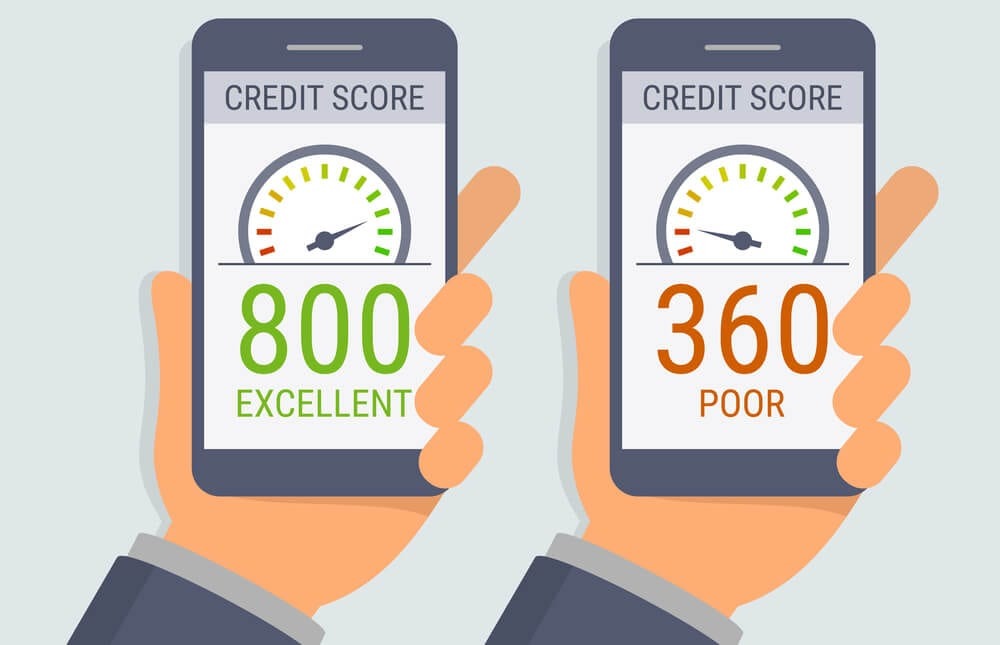
Acquiring a new credit card is often seen as a milestone in financial independence. However, it can be disconcerting to notice a dip in your credit score shortly after. Understanding the reasons behind this decline is crucial for effective credit management. Several factors may contribute to this situation, requiring a closer examination of your financial habits.
A new credit card can bring convenience and rewards, but it can also influence your credit score in unexpected ways. In this guide, we’ll delve into common reasons why your credit score might drop after obtaining a credit card. Plus, we’ll offer actionable tips to help you address these issues and maintain a healthy credit profile.
Increased Credit Utilization
After obtaining a new credit card, you may be inclined to use it frequently, resulting in higher credit utilization. This uptick in usage can negatively impact your credit score, as credit utilization plays a significant role in determining your overall score. Keeping your credit card balances low in relation to your credit limits is essential for demonstrating responsible credit management.
By maintaining a low credit utilization ratio, you show lenders that you can handle credit responsibly, which can ultimately improve your creditworthiness over time. It’s crucial to strike a balance between using your credit card for convenience and ensuring that you don’t exceed your credit limits, as doing so can lead to a decrease in your credit score.
Hard Inquiries on Your Credit Report
When you apply for a new credit card, the issuer typically conducts a hard inquiry on your credit report to assess your creditworthiness. While a single hard inquiry may have a minimal impact on your credit score, multiple inquiries within a short period can lower your score. To avoid this, limit the number of credit card applications you submit and research potential issuers beforehand to ensure you meet their eligibility criteria. Additionally, consider pre-qualifying for credit cards to gauge your likelihood of approval without affecting your credit score.
It’s important to be mindful of how often you apply for new credit, as each inquiry can leave a mark on your credit report. Too many inquiries in a short timeframe may raise red flags for lenders and suggest that you’re experiencing financial instability or overextending yourself. By being selective about when and where you apply for credit and avoiding unnecessary inquiries, you can minimize the impact on your credit score and maintain your financial stability.
Decreased Average Age of Accounts
Opening a new credit card decreases the average age of your credit accounts, potentially lowering your credit score. Lenders prefer longer credit histories as they provide a more comprehensive view of creditworthiness. To counteract this, avoid closing old accounts unless necessary, as keeping them open shows stability and positively impacts your score in the long run.
A shorter average age of accounts can negatively impact your credit score, but maintaining older accounts demonstrates financial stability. By keeping these accounts open and in good standing, you strengthen your credit profile over time.
Impact on Credit Mix and New Credit
Acquiring a new credit card can influence your credit mix and the amount of new credit on your report. Lenders prefer a diverse mix of credit accounts, so adding a credit card to your existing mix may have a positive effect. However, applying for multiple new credit cards within a short period can indicate financial instability and potentially lower your credit score.
Maintaining a healthy credit mix and limiting new credit applications are essential for maintaining a positive credit score. By carefully timing and evaluating new credit card applications, you can minimize the impact on your credit score and demonstrate responsible financial behavior to lenders.
Mastering Credit Card Impacts on Your Credit Score
While seeing your credit score decrease after getting a credit card can be concerning, it’s essential to understand the factors contributing to this change and take proactive steps to address them. By managing your credit utilization, minimizing hard inquiries, preserving the average age of your accounts, and balancing your credit mix and new credit, you can mitigate the negative impact on your credit score and work towards achieving your financial goals. Remember to monitor your credit score regularly and make adjustments as needed to maintain a positive credit profile over time.



 What Is a Good Credit Score? <p style=' font-weight: normal; line-height: 1.9rem !important; font-size: 17px !important;'> Typically, a credit score of 700 or higher is regarded as favorable for a score ranging from 300 to 850. </p>
What Is a Good Credit Score? <p style=' font-weight: normal; line-height: 1.9rem !important; font-size: 17px !important;'> Typically, a credit score of 700 or higher is regarded as favorable for a score ranging from 300 to 850. </p>  Factors that Affect Your Credit Score <p style=' font-weight: normal; line-height: 1.9rem !important; font-size: 17px !important;'> Dive into the key factors that impact your credit score and learn how to navigate them effectively for financial success. </p>
Factors that Affect Your Credit Score <p style=' font-weight: normal; line-height: 1.9rem !important; font-size: 17px !important;'> Dive into the key factors that impact your credit score and learn how to navigate them effectively for financial success. </p>  What Credit Score Is Needed to Buy a Car? <p style=' font-weight: normal; line-height: 1.9rem !important; font-size: 17px !important;'> Discover the credit score requirements for purchasing a car and gain insights into improving your creditworthiness for a smoother car-buying experience. </p>
What Credit Score Is Needed to Buy a Car? <p style=' font-weight: normal; line-height: 1.9rem !important; font-size: 17px !important;'> Discover the credit score requirements for purchasing a car and gain insights into improving your creditworthiness for a smoother car-buying experience. </p>